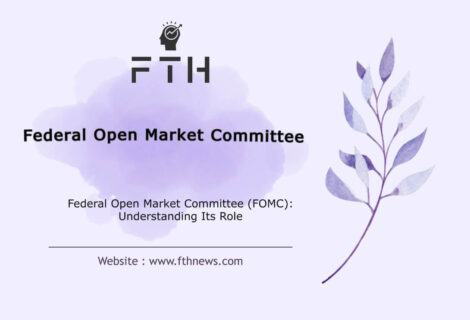
Market Economy: What Is it and Advantages
One of the fundamental pillars of a market economy is the competitive market. This system has played a pivotal role in propelling nations like Japan towards rapid development and diminishing the appeal of communist ideologies. In a market economy, individualism takes center stage, where individuals are empowered to make their own economic decisions. Governments play a minimal role in shaping the dynamics of the market economy.
Understanding Market Economies
How does a market economy drive a nation’s development?
In today’s world, economists and policymakers continually seek solutions to enhance the well-being of their citizens. while concurrently bolstering their nation’s defense capabilities.
Achieving these dual objectives begins with an initial focus on increasing a nation’s wealth.
Subsequently, a stable and efficient economic framework must be adopted or adjusted to harness the generated wealth for sustainable development and national security.
One such economic system is the market economy, which relegates government authority and places the market as the primary driving force behind prosperity and economic growth.
It’s noteworthy that this market-oriented economic system has been instrumental in catalyzing the rapid development of countries like Japan while simultaneously diminishing the appeal of communist ideologies among policymakers.
What is a Free Market?
One of the cornerstones of a market economy is the concept of a free market or competitive market. To grasp the essence of a market economy, it’s essential to acquaint ourselves with the idea of a competitive market. A competitive market is a marketplace in which prices are determined by the forces of supply and demand.
Here, no external entity dictates prices, and market participants themselves lack the power to alter prices – they are essentially price takers.
This stands in stark contrast to regulated or controlled markets and, to some extent, monopoly markets. In free markets, prices and other market dynamics are not subject to government interference. In mandated markets, government intervention is notably evident. It’s worth noting that a fully competitive market is rarely found in any country. Even in nations emblematic of market economies, markets are typically a blend of free-market elements and government controls. The freest markets can be observed in regions like Hong Kong, Singapore, and the United States.
Definition of Market Economy
A market economy is defined as an economic system in which the prices of goods and services are determined in unrestricted markets through the interactions of buyers and sellers.
In this system, the government does not play an interventionist role but instead functions as an observer under specific circumstances. It’s important to emphasize that price is a crucial economic component that conveys information to economic actors.
The mechanism for price determination and the functioning of markets have always been of paramount interest to policymakers in countries. Altering the mechanism for price determination can significantly impact a nation’s economic path. A market economy places the responsibility of price determination on market participants, who seek to maximize profit and utility.
This system contrasts with a “command economy.
In a command economy, government ownership of production inputs leads to government control over market regulations, with all transactions closely monitored.
At the zenith of a command economy, government authorities set prices.
For instance, irrespective of the actual cost, the government might declare a fixed price for a kilo of tomatoes until further notice.
The repercussions for producers and consumers in such a scenario can be extensive, though we won’t delve further into those issues here.
Today, pure market economies are rare, and even nations like the United States exercise government intervention in specific aspects of the market.
Many proponents of a free-market economy and the capitalist system deem minimal government interference as necessary, describing government’s role in economic affairs as a “necessary evil.” According to this perspective, the government’s presence is warranted, but control and restrictions should be kept to a minimum.
Economists in Favor of Market Economy
The concept of a market economy has garnered support from influential economists over the years, each offering valuable insights into the benefits of this economic system.
Adam Smith: Often credited as the father of modern economics, Adam Smith introduced the term “invisible hand” to underscore the advantages of a market economy.
He argued that when each individual in the market aims to maximize their profit and utility, a natural equilibrium emerges. Smith believed that complete competition in the market represents the most optimal and efficient state. His theory paved the way for a new perspective in economics.
Ludwig von Mises: A prominent figure in the realm of market economics, Mises emphasized, “Government means coercion, which, unfortunately, is the complete opposite of the meaning of freedom.” According to Mises, the government can only ensure freedom when its scope of authority is minimized. He advocated for the least government intervention in the economy and was a key figure in the “Austrian School.” Mises penned numerous writings critiquing socialism and the welfare state, which we will delve into in future articles.
Milton Friedman: Nobel Prize winner in Economics (1976), Milton Friedman consistently ranks among the world’s most influential economists.
He believed that demonstrating the advantages of a free market and a market economy to totalitarian governments could open the door to political freedom. Friedman staunchly advocated for reducing government interference in the economy and limiting the government’s influence in the market.
Friedrich Hayek: Renowned for his opposition to socialism and his advocacy for the free market, Friedrich Hayek was a leading figure in the Austrian school. He championed the virtues of individual choice over government decisions. According to Hayek, individual choices yield superior economic and broader life outcomes.
The Role of Government in a Market Economy
As mentioned at the outset, a market economy, at its most extreme, envisions a role for the government at zero. But is such a scenario achievable, and would it truly benefit the people? If government presence is deemed necessary, to what extent should it be involved?
In response to the first question, it’s essential to acknowledge that no country has achieved a purely absolute market economy. Even in regions often celebrated for their free economic sectors, like Hong Kong, relative constraints exist. Typically, proponents of market economies and free markets recognize the essential role of government. Some argue that the government’s functions should be limited to tax collection, market regulation, and addressing violations, while others advocate a more minimalistic role, with the government primarily serving as a market watchdog.
Continuing the evolution of theories related to the free economy, some proponents, like adherents of chaos theory, propose the complete elimination of government. They believe that with the establishment of private-sector institutions, even functions traditionally reserved for the government, such as defense and security, could be privatized.
The prevailing view, however, suggests that government presence persists because no better alternative has emerged. Most economists within this economic framework consider the government a necessary entity and attribute it roles for which no alternatives exist, deeming the absence of government potentially detrimental to the economy. Perhaps a balance, incorporating more advanced ideas like the introduction of insurance systems, could offer a suitable solution. However, before implementing such ideas, thorough examination and experimentation are crucial to ensure their economic stability. The consequences of a misguided economic system, as witnessed during China’s Maoist era or the Soviet Union under the leadership of Lenin and Stalin, should serve as cautionary examples.
Why Countries are Attracted to Market Economy: Advantages
After gaining an understanding of the market economy and the thinkers who support this perspective, it’s crucial to explore the advantages of this economic system to understand why countries are drawn to it.
1) Increasing the Desirability and Well-being of the People:
In a free market, especially when conditions of perfect competition are approximated, individuals engaging in trade for personal gain are expected to bring not only personal benefits but also a natural equilibrium to the market. This equilibrium, in turn, contributes to societal well-being and overall satisfaction.
2) Improving the Lives of Workers:
While systems like communism often promise a better life for workers, history has shown that governments struggle to uniformly determine and provide the desired level of well-being for all. Economist Milton Friedman argued that no one can spend money more wisely and judiciously than the owner of that money. Empowering workers with the freedom and decision-making authority over their resources can pave the way for a brighter future, surpassing government efforts.
3) Individual Growth:
In countries adhering to a free-market system, the notion that “getting rich” is possible is reinforced. However, unlike communist systems, this doesn’t involve redistributing one person’s rights to another. While some wealth redistribution might occur, people understand that personal development and skills improvement are key to building a better life. This instills a culture of continuous personal development and the enhancement of individual capabilities.
4) Sustainable Development:
The combined effect of the previous points suggests that a competitive and free market can elevate the desirability and satisfaction of the people. It also tends to enhance the living standards of the lower-income groups, motivating individuals to develop their skills for an improved quality of life. In such a society, the ingredients for sustainable development are present: sufficient resources, motivation, and a proper allocation of resources. The market economy, over time, can steer a country towards sustainable development.
Conclusion on the Market Economy:
A market economy, where prices are determined by market forces, reduces the government’s role in economic affairs. Presently, no country has achieved complete market freedom. Countries on the path to a free economy have demonstrated notable efficiency and success.
Today, countries with a high degree of economic freedom often treat the government as more of an observer and impose limited restrictions. They avoid excessive government interference in price determination. Consequently, prices in such countries are primarily influenced by the interplay of supply and demand. This approach has proven effective in fostering economic prosperity and personal growth.
Why is the Market Economy Important?
A market economy is crucial for several reasons, each of which contributes to its significance:
1. Market Demand Alignment:
One of the market economy is its ability to ensure that products, goods, and services are produced in accordance with consumer demand. In such an economy, consumers signal their preferences by being willing to pay a higher price for the goods and services they value most. This demand-driven approach guides businesses in determining what to produce and in what quantities.
2. Competitive Environment:
The competitive nature of a market economy promotes efficiency and benefits consumers. When businesses compete, consumers gain access to the highest quality goods and services at prices that align with their willingness to pay. This competition fosters an environment where companies constantly strive to enhance their offerings, making them more appealing and cost-effective for consumers.
3. Innovation and Improvement:
To stay competitive, businesses are compelled to continuously innovate and enhance their products and services. This drive for innovation not only keeps businesses relevant but also leads to the overall improvement of products and services available to consumers. As a result, market economies often serve as breeding grounds for technological advancements and creative solutions.
In summary, a market economy’s ability to align production with demand, foster competition, and encourage innovation plays a pivotal role in promoting economic growth, enhancing consumer choices, and driving progress in various industries. These factors collectively underscore the importance of the market economy as a driving force in many modern economies.
How Does a Market Economy Work?
In a market economy, the delicate interplay between free market forces and necessary government controls characterizes a mixed economy. Government regulations often include curbing the trade of illegal goods and subsidizing essential public services like transportation and education. However, several key characteristics distinguish a market economy:
1. Freedom of Choice:
Owners in a market economy enjoy the freedom to produce, sell, and buy goods and services within a competitive marketplace.
The only limitations are the capital available to them and the prices they are willing to transact for the products they desire.
This freedom of choice empowers entrepreneurs to start new ventures and compete in the market.
consumers have the autonomy to act and purchase according to their preferences.
2. Motivated by Personal Interest:
Self-interest motivation underpins the actions of individuals in a market economy. Consumers seek to obtain desired products and services at the most favorable prices, while entrepreneurs and business owners aim to maximize their profits. This motivation for self-interest serves as a primary driving force within the market economy.
3. Limited Government:
The role of government in a market economy is significantly restricted. While market economies are primarily driven by consumer demand for specific goods and services and businesses’ responses to that demand, the government does maintain a regulatory role. Its purpose is to ensure fair competition and prevent monopolistic practices within particular industries.
4. Competition:
Competition is a cornerstone of the market economy. It compels businesses to produce higher-quality products and operate as efficiently as possible to gain an edge in the market. It also curbs the misuse of economic power, preventing market domination by a single business or entity.
5. Personal Ownership:
Private property ownership is a fundamental tenet of a market economy. Property ownership lies with individuals who acquire it, as well as businesses responsible for producing it, rather than the government. This principle allows property owners to engage in legal agreements, such as buying, selling, or renting their property, with the potential to generate profits.
6. Markets and Price System:
An efficient market is one where all buyers and sellers have equal access to information.
allowing businesses to compete for consumers’ attention. This transparent competition results in informed consumer choices and enables prices to accurately reflect the laws of supply and demand.
In summary, a market economy thrives on the principles of individual freedom, self-interest motivation, competition, and limited government intervention. These characteristics collectively drive economic activity, promote innovation, and enhance overall well-being.














